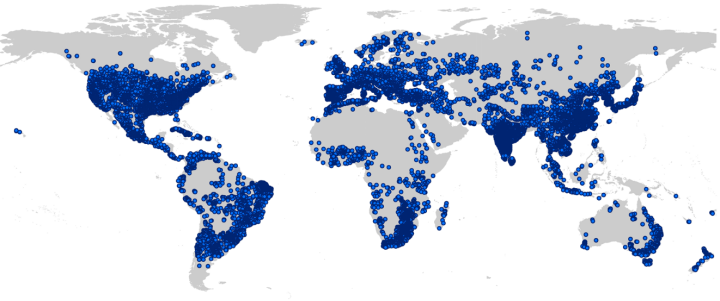The general rubric of ‘international economic law’ encompasses all international rules, standards and frameworks related to transnational trade, investment, and project finance related to water resources management. This theme covers the many economic issues related to water resources use and management, including hydropower development, irrigation, water foot-printing and stewardship. No use of water is devoid of some sort of economic element. Increasing demand due to demographic growth, economic development, and larger trade and investment flows may trigger fierce competition for water resources or may impact their sustainiable use.
Challenges around water management do not pertain exclusively to limited availability and increasing scarcity, but also to quality issues connected to pollution and temperature rise. Increased hydrological variability influences the predictability of water accessibility, while the latter may in turn influence the security of water entitlements and water allocation. However, such factors are often external to potential disputes that may arise in trade and investment contexts, requiring adjudicators to consider other applicable international frameworks, such as international water law, human rights, environmental law, etc. Conflicts are likely to occur between the requirements of international water or environmental law and those of international investment or trade law, e.g. between the regulation of water resources and protection of foreign investment.

38000 Dams across the Planet Source: http://globaldamwatch.org/our-research/
What constitutes a breach of an international obligation has almost always been rooted in domestic regulation adopted by host States. Such domestic regulation could also be the result of the implementation of international and regional transboundary water agreements. They, in turn, may constitute a breach of a standard of investment protection under international investment law or a restriction to international trade contrary to international trade/WTO law. Therefore, the outcome of an investment or a trade dispute may require the host State to repeal the regulatory measure or to pay compensation to the investor or other economic actor.
IWLA research under this theme
Chen H. The role of amicus curiae in implementing the human right to water in the context of international investment law. RECIEL. 2020;29:454–463
Daza-Clark AM. Enforcing transboundary water obligations through investment treaty arbitration: China, Laos and the Mekong River. RECIEL. 2020;29:442–453.
![]() Tel: 86-027-68756726
Tel: 86-027-68756726
![]() Address: Wuhan University China Institute of Boundary and Ocean Studies (CIBOS), P.R. China,
Address: Wuhan University China Institute of Boundary and Ocean Studies (CIBOS), P.R. China,
© International Water Law Academy. All Rights Reserved.